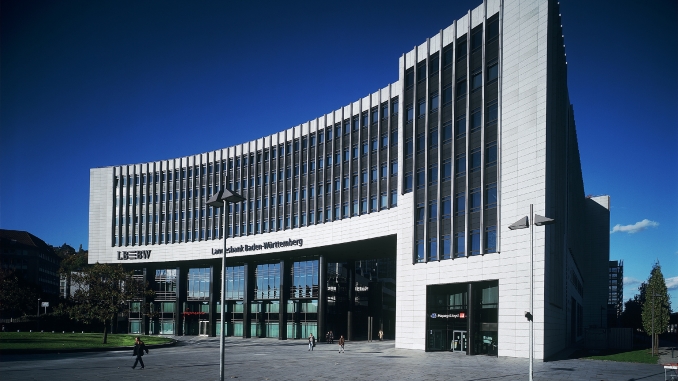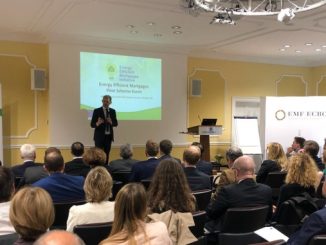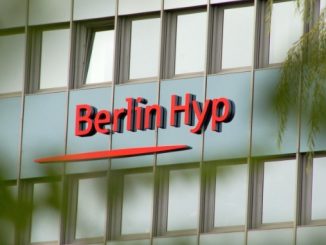
Landesbank Baden-Württemberg inaugurated a social bond framework on 19 September, bringing its total sustainable bond issuance including green bonds to €3.7bn with a €500m senior non-preferred trade. The debut is the first social bond to be assessed against new ISS-oekom ESG KPIs for their contribution to related SDGs.
The social bond is LBBW’s fourth benchmark in green or social format in just over four months, after it issued in green a €750m senior non-preferred bond and a $750m (€672m) covered bond in mid-May and a €500m senior non-preferred on 17 July, for an aggregate €2.42bn-equivalent including the social debut.
Andreas Wein, head of funding and debt investor relations at LBBW, said the level of activity reflects the strategic direction of the bank, with sustainability being one of four fundamental pillars of its strategy.
“That’s what’s driving our issuance,” he told Sustainabonds, “the bank’s overall commitment to the whole SRI concept. And our capital markets activity can highlight how LBBW is a leader in the sustainability space.”
Including the new deal, LBBW has issued €3.7bn of green and social bonds in six transactions since debuting in 2017.
“We were the first European bank to use a portfolio-based approach,” said Frank Damerow, director, sustainable finance and strategy at LBBW, “and the expansion of eligible assets is reflected in our issuance. It has also greatly helped foster sensitivity towards our sustainability aims within the company.
“Our idea was then to replicate our green work and aspirations in the less-developed social bond sphere in the context of our broader effort to expand our SDG financing capacity.”
Alongside €5.9bn of identified green assets, it now has €2.7bn of assets eligible under its social framework. Affordable basic infrastructure – water/sewage and public transport – constitutes 53% of the social bond portfolio, and access to essential services – healthcare, social care, and educational and vocational training – 47%.
The framework targets four Sustainable Development Goals, with the affordable basic infrastructure categories linked to SDGs 6 (clean water and sanitation) and 11 (sustainable cities and communities), and the access to essential services categories to SDGs 3 (good health and well-being) and 4 (quality education). In a second party opinion, ISS-oekom states that the five categories of use of proceeds make a “significant contribution” to their related LBBW-cited SDG goals. The “significant contribution” assessment is the best in a newly-developed ISS-oekom five point scale, with “limited contribution”, “no net impact”, “limited obstruction” and “significant obstruction” being the less favourable outcomes (see below for more).
LBBW has commissioned economic research and consulting firm Prognos to provide impact reporting.
“We now have a fully-fledged set-up,” said Wein (pictured), “with the reporting on the use of proceeds, the second party opinion, and the external agency supporting us in the instant impact reporting. That kind of broad framework is not necessarily what all our competitors are doing.”
 After the framework was finalised, the mandate for the eight year senior non-preferred euro benchmark, rated A2/A- (Moody’s/Fitch) was announced on Wednesday, 18 September, with an investor call that afternoon.
After the framework was finalised, the mandate for the eight year senior non-preferred euro benchmark, rated A2/A- (Moody’s/Fitch) was announced on Wednesday, 18 September, with an investor call that afternoon.
“Investors and SRI investors in particular are quite familiar with LBBW as an issuer and SRI issuer,” said Wein, “so we figured we could go ahead without a roadshow – in line with our most recent green bond issuance.”
Leads ABN AMRO, Erste, ING, LBBW, Société Générale and UniCredit the following morning (19 September) opened books for a €500m no-grow eight year deal with initial guidance of the mid-swaps plus 72bp area. After around an hour and three-quarters they reported books above €500m, excluding joint lead manager interest, and with orders above €600m after a little over three hours, the spread was fixed at 68bp. The final order book good at re-offer was €500m, excluding JLM interest. The deal was priced to yield 0.46%, equivalent to 109.2bp over the Bund.
“We were aiming to diversify our investor base, and again achieved that,” said Wein, “attracting some SRI investors who we would not necessarily have seen on a typical plain vanilla senior non-preferred bond.”
LBBW’s green bond issuance has been split between senior and mortgage-backed covered bond issuance, with cover-pool eligible green buildings a key category within the green framework. But although parts of the social bond portfolio – such as water and transport infrastructure loans to municipalities – are eligible for LBBW’s public sector cover pool, very little is mortgage cover pool-eligible and Wein said the focus is more on senior unsecured funding given the make-up of the portfolio.
Green ticks and red circles from ISS-oekom
LBBW’s new framework is the first in the social bond market that ISS-oekom has assessed using a new methodology that considers the assets’ contribution to the SDGs – not only those targeted by the issuer, but others that the second party opinion provider has identified as relevant.
For example, as well as acknowledging that the public transport use of proceeds category contributes significantly to SDG 11, ISS-oekom assessed the impact of these assets against ESG key performance indicators (KPIs) related to other SDGs. It positively assessed (with a green tick) the public transport category vis-à-vis SDG 8 (decent work and economic growth), noting that Germany – where the assets are located – enjoys high labour standards. However, it said it lacked sufficient information on a life cycle assessment of trains and any environmental management system at manufacturing sites to be able to positively assess the category’s impact on SDG 12 (responsible consumption and production), and included a red circle against these KPIs.
Example within LBBW’s public transport category of assessment against ISS-oekom ESG KPIs with associated SDGs

Source: ISS-oekom
According to Federico Pezzolato, SPO business manager at ISS, the methodology builds on the company’s ESG assessments of issuers and the knowledge it has gained in those analyses.
“We had some issuers interested in issuing social and sustainable bonds asking for some dedicated KPIs for education, healthcare and so on,” he said, “because it is more complicated to identify the correct metrics and measure impact in the less developed social bond market than in the green bond market. After the acquisition of oekom by ISS and to support the evolution of our SPOs, we therefore worked on providing issuers and investors with a dedicated methodology to give a realistic assessment of the contribution of the assets towards the realisation of the SDGs.”
Such assessments have already been included in green bond SPOs provided by ISS-oekom since June.
Pezzolato said that in LBBW’s case, the red circle reflects a lack of information on the related KPIs, but could for other issuers signify that the assets have a detrimental impact on the relevant SDG.
“We haven’t encountered this case yet,” he added, “but in theory, it’s possible. Our role is not to sign off or provide a stamp of approval – we are just assessors – and if there are any negative aspects that have to be highlighted, we are going to highlight them. It is then up to the investors.”
However, Pezzolato said that an issuer that is currently preparing a programme removed some assets from its planned portfolio when ISS-oekom highlighted their negative aspects.
“Clearly these assets do not disappear from the portfolio of the issuer – they will be financed with other instruments – but they are not part of the green bond portfolio because we highlighted the fact that there are some critical points regarding the assets,” he said. “In this way, we aim to minimise greenwashing risks and reassure investors about the sustainability credentials of the portfolio in which they invest.”



